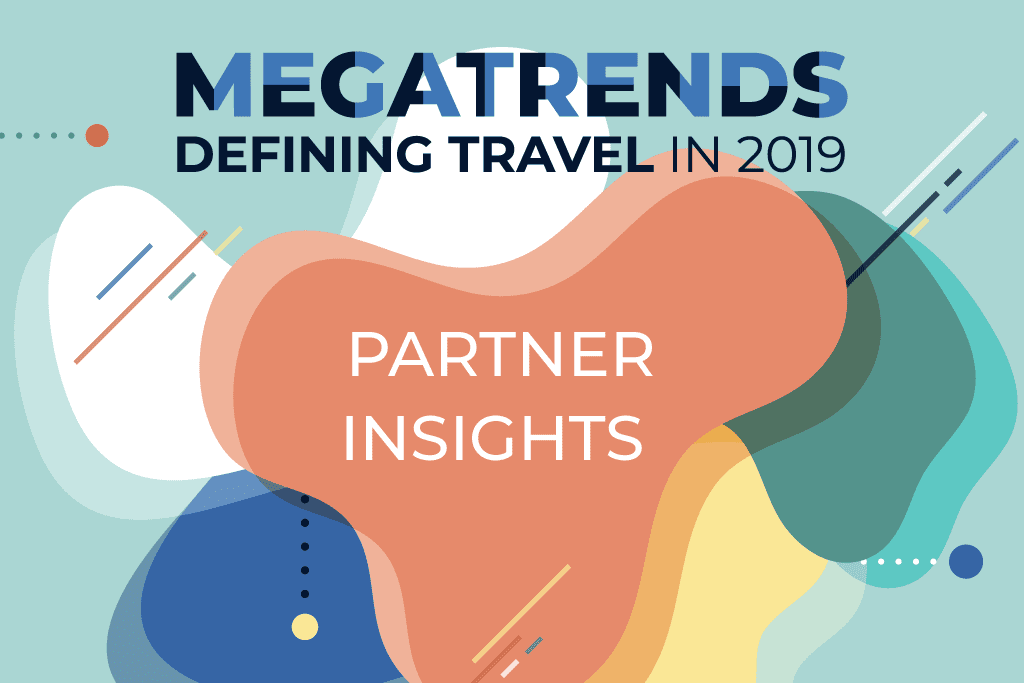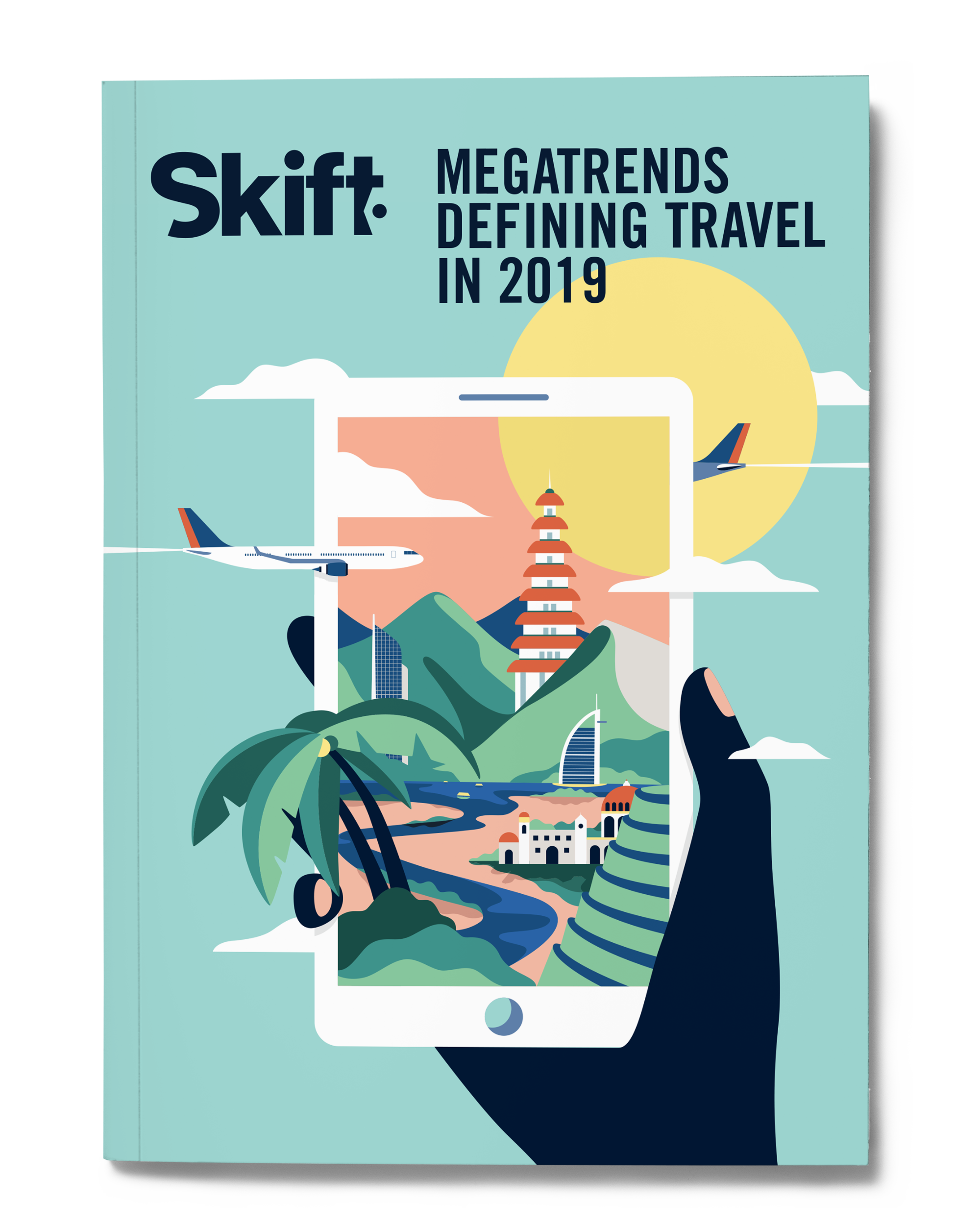Loyalty 2.0: From Incentivizing Transactions to Creating Value

Skift Take
This sponsored content was created in collaboration with a Skift partner.
We recently released our annual travel industry trends forecast, Skift Megatrends 2019. You can read about each of the trends on Skift, or download a copy of our magazine here.
The loyalty landscape in the travel industry is evolving. Brands like Airbnb, JetSmarter, Lyft, and Uber provide travelers with a wide range of diverse and competitively priced options, which has changed expectations and behaviors. The impact on loyalty is clear: Hotels are no longer competing with the loyalty programs offered by other hotels, rather, they’re competing with a wide range of travel products that create value in different ways. Traditional point-based loyalty programs are no longer enough, and companies risk losing market share to innovative competitors that offer more flexibility and personalization.
Customers expect more. They want diverse ways to redeem points, deeper engagement, quicker gratification, more flexibility and relevance, and easier processes. Today’s travelers are more empowered and in control than ever before. They seldom book all their travel through one company, and often opt to book separate components of a journey based on where they can find the best deal. Unfortunately, many legacy loyalty programs require their members to consolidate their travel activities within a single program in order to truly take advantage of benefits.
With so many booking options available, why would travelers book with only one brand? As we look at the future of travel loyalty, we see that success awaits those companies that simplify and democratize points and benefits for all travelers. Here are three key trends prompting this need for disruption in loyalty offerings:
Loyalty programs shift from being an incentive to a strategic imperative
Today’s loyalty program members expect to receive more than points when interacting with a brand. The transactional benefits of points alone no longer lead loyalty. Brands have begun to reconsider the role of loyalty offerings in the company’s overall growth strategy and rethink what it truly means to be loyal across all aspects of their business. Loyalty must become fully integrated into the brand’s business strategy and culture.
Intense competition means travel brands are fighting for air time with each member
Travel brands are not only competing with their own industry for loyalty dominance. They’re also being compared to stellar loyalty programs in other industries. The Colloquy Loyalty Census found that the average U.S. household is enrolled in more than 18 loyalty programs and actively using eight. Consumers are constantly, if subconsciously, comparing each of these loyalty offerings — the value of their benefits, ease of use, how quickly the points can be redeemed, and so on. Within the travel industry, redemption is more complex. It takes the average traveler multiple hotel stays to earn a free night; contrast that with getting immediately redeemable points on credit card purchases or earning a complimentary drink at your favorite coffee shop. The program rewards occur much faster in other industries’ loyalty programs, increasing the perceived value for the individual.
Expectations of personalization evolve beyond one-to-one communications
The messaging strategy commonly referred to as one-to-one communications — which offers personalized promotional offers — is evolving. The next phase will consist of a more holistic customer experience strategy that’s personalized with the best choice for individuals across all points of interaction, creating a more identity-based marketing framework. Members expect each and every interaction and experience with the brand to be personalized, and when it’s not, the value of the loyalty program to these members diminishes substantially. Members now expect even their points redemption options to be customized to fulfill their specific needs.
The Loyalty Path Forward
It’s time for travel brands to pause and evaluate their loyalty offerings. In order to thrive in the new loyalty ecosystem, companies must simplify their programs. For example, an airline can simplify their program by basing their loyalty statuses on the frequency of flights taken, instead of taking both miles and dollars into consideration. A business traveler flying weekly between Boston and New York is not going to accumulate that many miles since these trips are short, but he or she should have the opportunity to earn elite loyalty status based on the high frequency of his or her travel.
As travel brands evolve their loyalty offerings, they should look at other companies that are managing the aforementioned change triggers well. Walgreens is one such brand. It leveraged Epsilon’s technology to support its loyalty program, Balance® Rewards. The platform integrates customer data for each member from multiple sources including online purchases, in-store enrollments, and even from registered devices like Fitbits. The program supports real-time enrollment through multiple channels; points can be earned through in-store purchases as one would expect but also through activities, like when a customer takes his or her blood pressure or meets his or her daily step goal. Each interaction with the brand, and each member experience, is fully personalized.
The loyalty marketing journey is a marathon not a sprint. In order to ensure the success of loyalty offerings, brands must deliver personalization and create offers and rewards that are relevant to members’ unique needs. Companies must determine how to shift from transactional reward structures to experiential fulfillment, all while ensuring exclusivity for the most elite loyalty program members. And it has to be an iterative process that constantly collects feedback along the way.
Loyalty is a way of doing business and the overall brand experience needs to live and breathe both inside and outside of your organization. Stop focusing on your loyalty program and focus instead on driving loyalty through your way of doing business. After all, loyalty is a business mindset.
This content was created collaboratively by Epsilon and Skift’s branded content studio, SkiftX.






